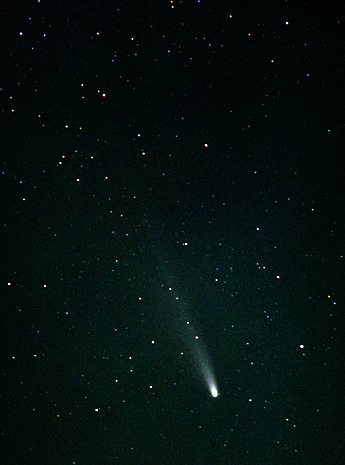
Comet Ikeya–Zhang is a cometdiscovered independently by two astronomers from Japan and China in 2002.
On February 1, 2002, Chinese astronomer Zhang Daqing from Kaifeng discovered a new comet in the constellation Cetus, and reported it to the IAU.
He found that Japanese astronomer Kaoru Ikeya had discovered it earlier than he had, as the time of sunset is earlier than China.
According to tradition, since they discovered the new comet independently, the comet was named after both of them. The comet was initially designated as C/2002 C1 (Ikeya-Zhang).
The comet was probably observed in 1661, 341 years earlier, by Polish astronomer Johannes Hevelius. A bright comet had also been recorded by Chinese astronomers in 1661.
The permanent designation "153P" was given to the comet. It has the longest known orbital period of any periodic comet (366.51 years).
The comet passed perihelion on March 18, 2002, and with apparent magnitude 3.5, it became the brightest comet since 1997.
